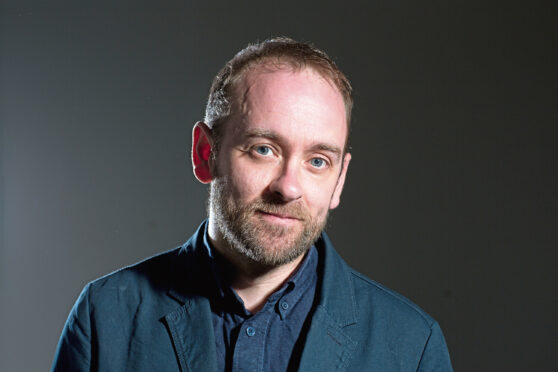
Edinburgh-based author Philip Miller’s third novel, written in under a month, was snapped up by publishers and has already been optioned for screen by production company Two Rivers Media.
It’s easy to see why. It is no ordinary Tartan Noir. The Goldenacre – set in Edinburgh – is a novel about identity; what is fake and what is real; the veneer versus the reality, both of its characters and of the city itself. With its focus on the art world and the provenance The Goldenacre, the book’s fictitious painting by real-life artistic genius Charles Rennie McIntosh, it is at once upmarket and elegant, but at the same time dark and dangerous.
Former reporter Miller, 48, a civil servant by day and an author by night, came up with the plot in the wake of the fires of 2014 and 2018 that destroyed the iconic Glasgow Art School designed by Mackintosh.
“Initially the art at the core of this book was going to be by somebody else,” he reveals, “but I just thought Mackintosh fitted the story. The art school fire was fresh in mind and as a reporter I had covered both fires; the tragedy of that beautiful building burning down. It seemed to fit in with my story, with great themes of loss and identity. Without spoiling the ending, Mackintosh’s life story seemed to fit neatly with the plot of the novel.”
The author – a dad-of-two married to writer and film director Hope Dickson Leach – usually writes in the spare room of their Edinburgh home. But after landing a Robert Louis Stevenson Fellowship from the Scottish Book Trust he was able, pre-pandemic, to write the first draft of The Goldenacre in under a month at a writer’s retreat at Grez-sur-Loign in France, a haven for the late great Stevenson himself.
Miller tells P.S: “I was at work when I got the call a couple of years ago saying Polygon wanted to publish it. It was a lovely moment.”
In it, The Goldenacre, the last work by artistic genius Mackintosh, has been gifted to the people of Scotland. But, while it captivates the art world, the painting is part of a violent mystery. Cue Thomas Tallis, a troubled art expert sent up from London to authenticate the work and hard-nosed, old-school Glaswegian reporter Shona Sandison, who is probing the killings of an artist and a councillor. The investigators are soon plunged into a world of crime, money and identity.
And there’s a killer twist few would anticipate – including Miller himself. He reveals it came to him out-of-the blue on the flight to France to pen the novel. “The twist at the end that turns the plot on its head came to me as I was dropping off to sleep on the plane,” he says. “I wrote it down on a bit of the book I was reading at the time, The Lady In The Lake by Raymond Chandler.”
Of the finished novel he says: “It is about a painting, and the identity of that painting, but it is also about the identity of everyone else in the book. What they are showing to the world and what they really are. I realised that was what the book was about as I was writing. And also Edinburgh itself, what it is on the surface and what it is underneath.
“It is a book of mirrors and reflections, things that are real and things that are not. Frauds, people and items. And the reader has to try to navigate a way through this world of mirrors and characters and what they mean and what they say.”
The Goldenacre Philip Miller, Polygon, £9.99

Enjoy the convenience of having The Sunday Post delivered as a digital ePaper straight to your smartphone, tablet or computer.
Subscribe for only £5.49 a month and enjoy all the benefits of the printed paper as a digital replica.
Subscribe